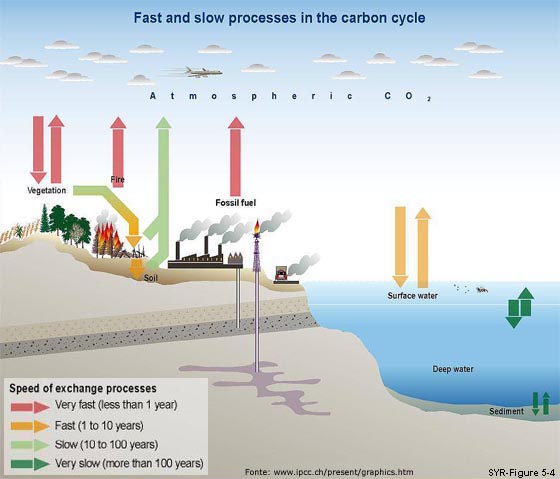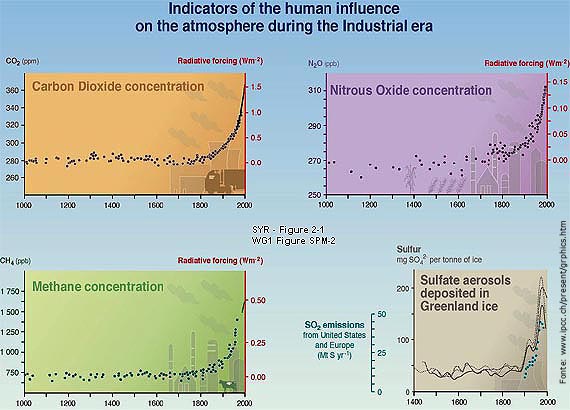|



|
Overview

GLOBAL CLIMATIC CHANGE
AND HYDROELECTRIC RESERVOIRS
 |
World Commission on Dams (WCD): when the
hydroelectric generation values are under 0.1 W per
square meter of flooded area, emissions may be
greater than those of thermoelectric power plants;
|
 |
Emissions seem to vary according to the depth and to
the density of flooded vegetation;
|
 |
The carbon cycle: must be studied before and after
the beginning of the flooding. The studies should
focus on the interactions with the drainage basins;
|
 |
United Nations Framework Convention on Climate
Change (UNFCCC): Commitment to develop and
periodically update national surveys of anthropic
emissions by each source and of removals by each
sink; |

The
carbon reservoirs have very different magnitudes and
their role is also related to the residence times.
Therefore, a small reservoir may have a greater
importance than a larger one. For example, the biota
holds approximately 0.1% of the carbon on Earth, but it
is responsible for the larger part of fluxes under
natural conditions.
However, human activities burn fossil fuels, releasing
to the atmosphere, in a matter of minutes, huge amounts
of carbon which were stored in the earth for millions of
years.

Climate Change has been one of the main global issues
over the last decade. The Intergovernmental Panel on
Climate Change (IPCC), created in 1988 by the United
Nations Environmental Program (UNEP) and by the World
Meteorological Organization (WMO), encompasses
scientists of many countries, and has been developing
research about the global climate change, its
consequences, and the influence of anthropic activities
on these changes. The documents constituting the Third
Evaluation Report of the IPCC (“Climate Change 2001”)
confirm that the global warming observed in the last 50
years is a result of the increase in the concentrations
of greenhouse gases (GHG), following mostly from the
burning of fossil fuels. Because of this, extreme
climate events are predicted as well as impacts on the
circulation and volume of the oceans (rise in the water
level), on pluviometric regimes, on agriculture and on
the structure and productivity of ecosystems, with
biodiversity losses and changes in the carbon and
nutrient cycles.
Next
|